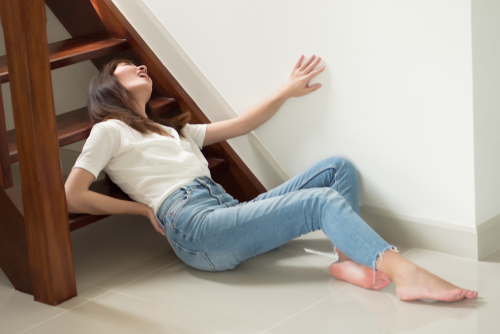Although a slip and fall accident seems like the type of accident that only causes scrapes and bruises, some slip and falls can lead to serious, life-altering injuries such as spinal cord injury. Elderly individuals are particularly susceptible to spinal cord injuries in slip and fall accidents. If you have experienced a spinal cord injury after a slip and fall accident that occurred on someone else’s property, you may have the right to recover compensation.
Types of Spinal Cord Injuries
A spinal cord injury refers to any damage to the nerve tissues that make up the spinal cord. Nerve tissues can be damaged solely by the forces involved in a slip and fall, or damage may occur as a consequence of disc injury or broken vertebrae.
Spinal cord injuries fall into one of two basic categories:
- Incomplete spinal cord injury – An incomplete injury occurs when the spinal cord is only partially damaged. Incomplete injuries may result in the loss of some sensation or motor function below the injury site, with the specific effects depending on the severity of the injury and where the injury is located (e.g. left-vs.-right, anterior-vs.-posterior).
- Complete spinal cord injury – A complete injury involves the total severing of the spinal cord, which results in full paralysis below the level of the injury.
How Can Slip and Falls Cause Spinal Cord Injuries
While spinal cord injuries more frequently occur for slip and fall victims over the age of 65, anyone may be susceptible to spinal cord damage from a slip and fall accident. For example, a person may strike their back on something as they fall, imparting traumatic forces on the spinal cord. Or a person may suffer broken or crushed vertebrae or spinal disc herniations if they hit the ground the right way, or if they fall downstairs or down an incline after slipping and falling.
What Are Your Rights If You’ve Suffered a Serious Spinal Cord Injury in a Slip and Fall Accident?
Unfortunately, there is no way to repair a complete spinal cord injury. Even an incomplete spinal cord injury may take a long time and extensive treatment to recover from. Treatment for spinal cord injuries is usually focused on physical rehab and occupational therapy to regain strength, sensation, and range of motion, and to learn adaptations for permanent disabilities so that a spinal cord injury victim can resume as independent and productive a life as possible.
Therefore, if you sustained a spinal cord injury in a slip and fall accident that was caused by a property owner’s or other party’s negligence, you may be entitled to recover compensation for past, ongoing, and future expenses and losses, including for:
- Costs of medical treatment and physical rehabilitation
- Long-term care expenses, such as home health care or home renovations to accommodate permanent disabilities
- Loss of income after taking time off work to recover from a spinal cord injury
- Loss of future earning capacity due to permanent impairments or disabilities
- Physical pain and emotional trauma or distress
Contact a Fort Lauderdale Personal Injury Lawyer to Discuss Your Slip and Fall Accident Case in Florida
Did you or a loved one sustain serious injuries due to a slip and fall accident in Florida? Don’t let the medical bills pile up while you wait for the negligent party or their insurance company to do the right thing. Right now, you need an aggressive personal injury attorney on your side, fighting to get you the compensation you need, want, and deserve. The skilled attorneys at Lawlor, White & Murphey represent clients injured because of slip and fall accidents in Coconut Creek, Plantation, Pompano Beach, and Pembroke Pines, and throughout Florida. Call (954) 525-2345 or fill out our online contact form to schedule a free consultation about your case. We have an office conveniently located at 2211 Davie Boulevard, Fort Lauderdale, FL 33312, as well as offices in Pembroke Pines, Weston, Coconut Creek, Plantation, and Pompano Beach.
The articles on this blog are for informative purposes only and are no substitute for legal advice or an attorney-client relationship. If you are seeking legal advice, please contact our law firm directly

